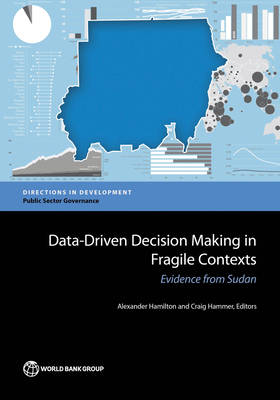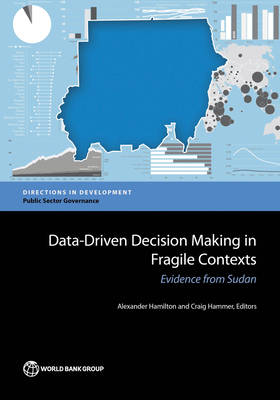
- Afhalen na 1 uur in een winkel met voorraad
- Gratis thuislevering in België vanaf € 30
- Ruim aanbod met 7 miljoen producten
- Afhalen na 1 uur in een winkel met voorraad
- Gratis thuislevering in België vanaf € 30
- Ruim aanbod met 7 miljoen producten
Zoeken
Omschrijving
The need for evidence-based decision making at all levels of government is perhaps greatest in fragile settings. Data deficiencies contribute to state fragility and exacerbate constraints on the capacity to provide basic services, public security, and the rule of law. The lack of robust, good-quality data can also have a disabling effect on government efforts to manage political conflict. Indeed, the lack of data can worsen conflict, since violent settings pose substantial challenges to knowledge generation, capture, andapplication. The development of sustainable and professional data-literate stakeholders who are able to produce and increase the quality and accessibility of official statistics can help to improve development outcomes. Goodquality and reliable statistics are required to track the progress of development policies through the monitoring of performance indicators and targets and to ensure that public resources are achieving results. Although reliable data alone cannot have a transformative effect without the right contextual incentives, they constitute an essential prerequisite for greater accountability and more efficient decision making. Data-Driven Decision Making in Fragile Contexts: Evidence from Sudanexplores methods and insights for datacollection and use in fragile contexts, with a focus on findings from Sudan. It begins by posing several questions on the political economy of data and then sets out a framework for assessing the validity, reliability, and potential impact of data on decision making in fragile settings. It then provides insights regarding the challenges associated with data-driven decision making in Sudan, derived from the 2014-15 United Kingdom's Department for International Development Sudanese household survey. Featured are data-driven analyses of diverse topics, from public service delivery to the interplay of governance, trust, andstate legitimacy. As the data revolution and the advent of the Sustainable Development Goals herald an increasing need to solicit the perceptions and experiences of program beneficiaries, the impetus to develop and deploy good quality survey instruments will increase. This volume provides an important proof of concept that this type ofendeavor is both feasible and useful in fragile contexts and, in combination with other important data collection tools, can be effectively utilized to enrich the evidence base of decision making in these settings.
Specificaties
Betrokkenen
- Auteur(s):
- Uitgeverij:
Inhoud
- Aantal bladzijden:
- 224
- Taal:
- Engels
- Reeks:
Eigenschappen
- Productcode (EAN):
- 9781464810640
- Verschijningsdatum:
- 16/06/2017
- Uitvoering:
- Paperback
- Formaat:
- Trade paperback (VS)
- Afmetingen:
- 178 mm x 254 mm
- Gewicht:
- 399 g

Alleen bij Standaard Boekhandel
+ 128 punten op je klantenkaart van Standaard Boekhandel
Beoordelingen
We publiceren alleen reviews die voldoen aan de voorwaarden voor reviews. Bekijk onze voorwaarden voor reviews.








